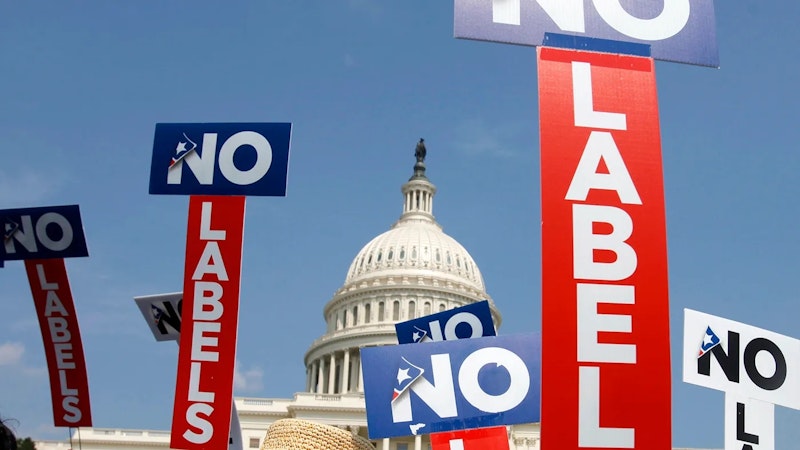Early this month, the legacy media spent hours upon hours re-living one of their favorite days: January 6. It’s a great topic for them because Trump falsely claimed that he was the real winner of the 2020 presidential election, and some of his loyal backers stormed the Capitol in opposition to what they thought was the certification of a rigged election.
If Trump’s the GOP nominee, I want him to win, even though I never bought the voter fraud nonsense and will vote third-party in Massachusetts. The only person who defrauded Trump was Trump: by discouraging people—including parents and older Americans—from voting by mail. No matter what hysteria liberal politicians and the media profess, the lack of acceptance of election results is nothing new, and I expect it later this year. Since my birth, every election has had its detractors, even if it wasn't as many as in 2020.
How about the 2000 presidential election? A July 2001 Gallup poll found that only 48 percent of Americans thought Bush won the election "fair and square" while 33 percent said he won on a technicality, and 17 percent said he "stole" the election (including 52 percent of black Americans); about one-sixth of the country refused to accept the election outcome, a substantial minority of Democratic and Democratic-leaning voters.
Four years later, some also objected to the 2004 election results. Ohio, a key swing state at the time, gave Bush the electoral votes he needed to beat John Kerry. Unhappy with the result, 31 House Democrats voted against certifying the results due to alleged voting irregularities; this included Ed Markey, one of the least impressive politicians in American history.
The 2008 and 2012 elections were different, though they followed a similar pattern. The problem here is that many Republicans thought Barack Obama wasn't even eligible to run for president. During his presidency, polls came out showing half of GOP voters thought Obama was born in Kenya rather than Hawaii. Remember, Trump came to political prominence in the early-2010s by promoting this conspiracy theory—and Obama made fun of him at the White House Correspondents Dinner for it. Many people also thought Obama was Muslim and lying about being Christian. As a Catholic, I understand why liberal politicians' faith comes into question, but Obama is a unique case. The United Church of Christ, to which he belongs, has a radically different worldview than that of Catholicism and most other mainline protestant churches.
Then comes Russiagate and Hillary Clinton's whining about a rigged election. She lost a winnable presidential election to Trump—because that's how highly people thought of her. Markey, the aforementioned junior senator from Massachusetts, and other conspiracy theorists in Congress fueled these lies by saying untrue things like that a grand jury in New York was investigating the president's ties to Russia. Clinton grossly inflated the number of people turned away from the polls due to a lack of an ID in swing states. Maybe if she visited Wisconsin once, she would’ve won the state.
Four years later, it was the pro-Trump side calling the election rigged. Trump decided he was the real winner of the 2020 election because states counted more urban votes overnight, so he supposedly lost his lead. There was no lead since he got fewer votes than Joe Biden in battleground states, and the order in which you count the votes can’t change that fact. The sore-loser mentality pissed me off as someone who voted for Trump (good Supreme Court picks, public charge rule on immigration, and one of the funniest men alive). He made many rhetorical, policy, and campaign mistakes that cost him the election but successfully convinced many supporters that he was a victim. He's a wealthy man married to a supermodel—hardly a sympathetic figure.
Whether Trump or Biden wins the election this year, we should accept the results and move forward. The last thing needed is more people going to prison because they mistakenly thought they could stop the non-existent steal.

